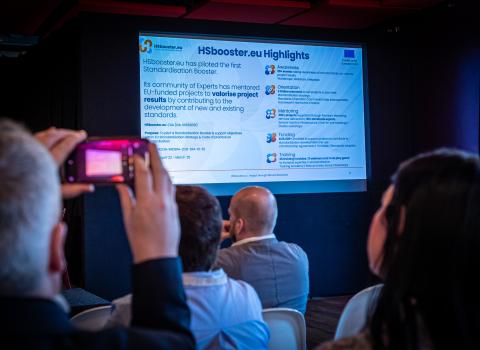A more intelligent approach to spending public money is on the way after MEPs voted through new procurement rules that will give public sector bodies the power to assess the contribution to innovation when awarding contracts for public works, goods or services.
The measure, expected to be formally approved by November, will over-ride existing laws, dating back to 2004, which compel public authorities to focus on cost, without considering the wider innovative, environmental or social aspects of a bid.
Public sector spending accounts for nineteen per cent of the European Union’s combined gross domestic product, making it a powerful lever for achieving specific policy goals, such as job creation, lowering greenhouse gas emissions, setting standards and promoting the adoption of technology. The new directive will put more emphasis on criteria such as quality, innovation, the experience of the staff delivering the contract, or offers of after-sales service and technical assistance, while still taking into account the price or life cycle costs of the work or service.
Having considered all of these factors, authorities are then in a position to evaluate the most economically advantageous tender, according to the European Parliament’s Internal Market Committee, when it voted through the new rules last week.
“The criterion of the most economically advantageous tender once again makes quality the central issue and puts an end to the dictatorship of the lowest price,” said Parliament Rapporteur Marc Tarabella, MEP.
Opportunity for SMEs
Public contracts are of particular importance to small and medium-sized enterprises (SMEs), for whom government approval provides validation that can help to attract private investors and customers. Tendering for contracts is onerous, however, and can prove too costly and labour-intensive for many SMEs.
Under the new rules, a standard "European Single Procurement Document" will be provided in all languages, and authorities will be obliged to share the details of eligible bidders held in national databases. Only the winning bidder will need to provide original documentation, saving companies from spending time on unsuccessful bids.
Authorities will also be encouraged to divide contracts into lots, so as to enable small firms to bid for just one part.
“The easier access to such contracts for SMEs is a fundamental criterion,” said Irish Minister for Public Expenditure and Reform, Brendan Howlin. “The simplified administrative framework will mean the inclusion of smaller businesses for contracts that have always been clearly within their capacity to perform.”
Driving innovation
MEPs also inserted a new procedure to encourage innovation through "Innovation partnerships" that will allow authorities to call for tenders to solve a specific problem without prescribing how it should be tackled. Once minimum requirements are fulfilled, it is up to bidders to offer the most innovative answer.
The US government has been using public procurement to drive innovation for years, setting fixed quotas for government offices and agencies. But until now, Europe has failed to embrace the practice on a large scale. “It’s an idea whose time has come,” believes Malcolm Harbour, MEP and Chairman of the Internal Markets Committee. “We are searching for ways to make innovation-based companies grow very quickly – at a time when markets are weak and lenders are reassessing risk,” Harbour said.
While a simplified bidding procedure is good news for innovative small companies, Howlin also emphasised the wider significance of the reforms for wider society, “By increasing and broadening access to such contracts, we are helping to create competition, to drive efficiencies and ensure that public monies are being used in a cost-effective manner to provide for public need but at the same time support job creation and innovation.”
End-to-end E-procurement
At the heart of efforts to modernise and simplify EU public procurement will be the promotion of electronic procurement.
Plans are already underway, with the Commission proposing on 26 June to create an EU directive on e-invoicing in public procurement and setting out its vision for the full digitalisation of the public procurement process, so-called 'end-to-end e-procurement'.
It is estimated that the adoption of e-invoicing in public procurement across the EU could generate savings of up to €2.3 billion, as well as having significant environmental advantages. Currently, the uptake of e-invoicing across Europe is very low, accounting for only 4–15% of all invoices. "As the largest spender in the EU, the public sector should play a leading role in stimulating its uptake," said Michel Barnier, Commissioner for Internal Market and Services.
Among suggested measures, the draft directive proposes the establishment of a European e-invoicing standard to improve interoperability between different, mainly national, e-invoicing systems.





 A unique international forum for public research organisations and companies to connect their external engagement with strategic interests around their R&D system.
A unique international forum for public research organisations and companies to connect their external engagement with strategic interests around their R&D system.